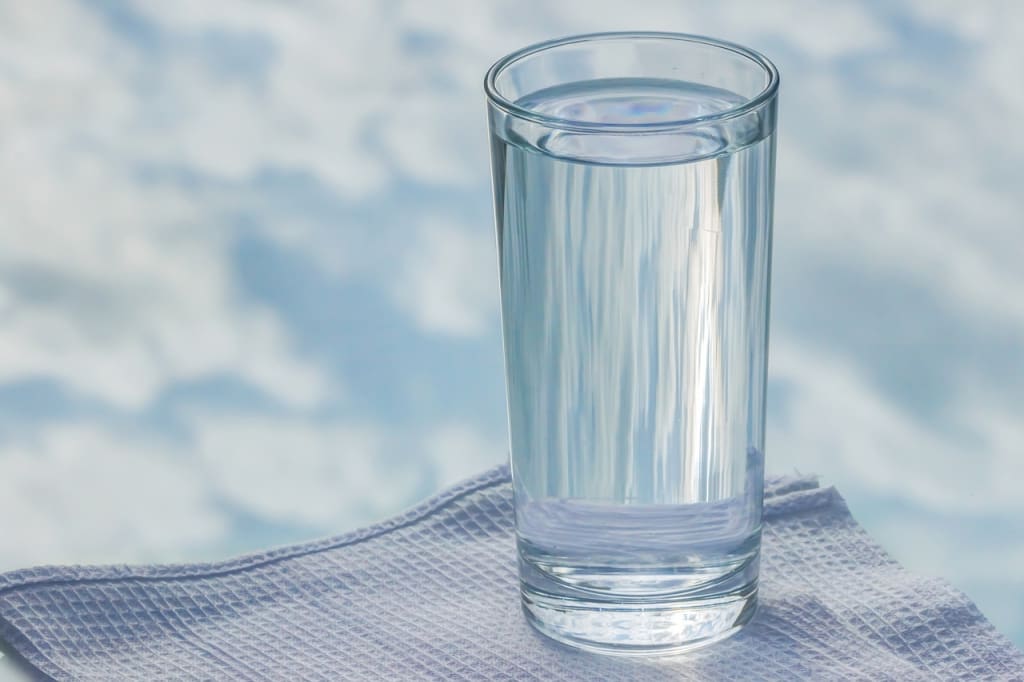Why water is important to the body.
Benefits of water

From the moisture in the soil and the ice caps to the cells within our own bodies, water is present almost everywhere. The average person has a water content of between 55 and 60 percent, depending on factors like location, fat index, age, and sex. Human babies are even more wet at birth. They swim similarly to fish because they are 75% water.
However, by the time they turn one, only 65% of them are made of water.
The H20 in our bodies functions to cushion and lubricate joints, regulate temperature, and nourish the brain and spinal cord. So what function does water serve in our bodies, and how much do we actually need to drink to stay healthy? We don't just have water in our blood. The brain and heart of an adult contain almost 75 percent water. That is roughly comparable to the moisture content of a banana. With 83 percent, lungs resemble an apple more.
The water content of human bones, which appear to be dry, is 31%. Why do we need to drink so much if we are essentially made of water and are surrounded by water? Well, each day we lose two to three liters through sweat, urine, bowel movements, and even just breathing. Even though these processes are vital to our survival, we still need to make up for the fluid loss. To prevent dehydration or overhydration, both of which can have detrimental effects on general health, it is imperative to maintain a balanced water level. Sensory receptors in the hypothalamus of the brain signal the release of antidiuretic hormone when low water levels are first detected. Aquaporins, specialized channels that allow blood to absorb and retain more water, are produced when it reaches the kidneys, resulting in concentrated, dark urine.
Energy levels, moods, skin moisture, blood pressure, and signs of cognitive impairment can all suffer noticeably from increased dehydration. Dehydration makes the brain work harder to accomplish the same tasks as normal brain function, and it can even cause temporary brain shrinkage. The most common reason for hyponatremia, also known as overhydration, is rapid water ingestion. Due to challenges controlling water levels in challenging physical circumstances, athletes frequently succumb to overhydration. The release of antidiuretic hormone into the blood is slowed or even stopped in an overhydrated brain, in contrast to how the dehydrated brain increases its production. Cells swell as a result of the body's sodium electrolytes becoming dilute. The volume of diluted urine that results in severe cases overwhelms the kidneys. A headache, nausea, and, in rare cases, seizures or death may result from water intoxication after that. But that's a pretty extreme circumstance. For those of us who are fortunate enough to have access to clean drinking water on a regular, daily basis, keeping a well-hydrated system under control is simple. The received wisdom for a very long time was that we should consume eight glasses per day. Since then, that estimate has been improved. Now, it is generally accepted that our weight and environment play a significant role in how much water we need to consume. If we are healthy, active, old, or overheating, the recommended daily intake may be pushed up or down to 2 point 5 to 3 point 7 liters of water for men and about 2-2 point 7 liters for women.
While water is the healthiest hydrator, other drinks—even those containing caffeine like coffee or tea—refill fluids as well. And about a fifth of the water we consume each day comes from food. Because they contain more than 90% water, fruits and vegetables like strawberries, cucumbers, and even broccoli can be used to increase fluid intake while also supplying important nutrients and fiber. The benefits of drinking sensibly could last for a while. According to studies, maintaining a healthy level of hydration can help manage diabetes, lower the risk of stroke, and possibly even lower the risk of some cancers. No matter what, drinking enough water will significantly improve your day-to-day mood, cognition, and functioning.
About the Creator
Enjoyed the story? Support the Creator.
Subscribe for free to receive all their stories in your feed. You could also pledge your support or give them a one-off tip, letting them know you appreciate their work.






Comments
There are no comments for this story
Be the first to respond and start the conversation.